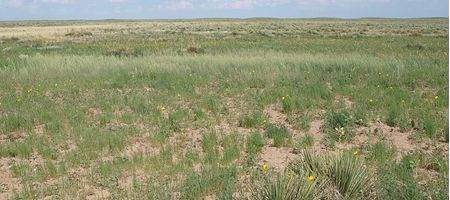Plants may thrive in the initial stages of global warming – but not for long. A study from Northern Arizona University shows that any improvements in growth caused by climate change disappear within ten years.

“We were really surprised by the pattern, where the initial boost in growth just went away,” says doctoral student Zhuoting Wu. “As the ecosystems adjust, the responses changed.”
The researchers subjected four grassland ecosystems to simulated climate change over a ten-year period. While plants grew more in the first year with the global warming treatment, this effect diminished over the next nine years and finally disappeared.
The warmed grasslands cycled nitrogen more rapidly – an effect that should make more nitrogen available to plants and help them grow more. However, the researchers found, much of the nitrogen was lost, either into the atmosphere or leached out by rainfall.
“Faster nitrogen turnover stimulated nitrogen losses, likely reducing the effect of warming on plant growth,” says professor Bruce Hungate.
“More generally, changes in species, changes in element cycles — these really make a difference. It’s classic systems ecology: the initial responses elicit knock-on effects which here came back to bite the plants. These ecosystem feedbacks are critical. You just can’t figure this out with plants grown in a greenhouse. ”
The team plans to continue the experiments for at least five more years.
“The long-term perspective is key,” says Hungate. “We were surprised, and I’m guessing there are more surprises in store.”






